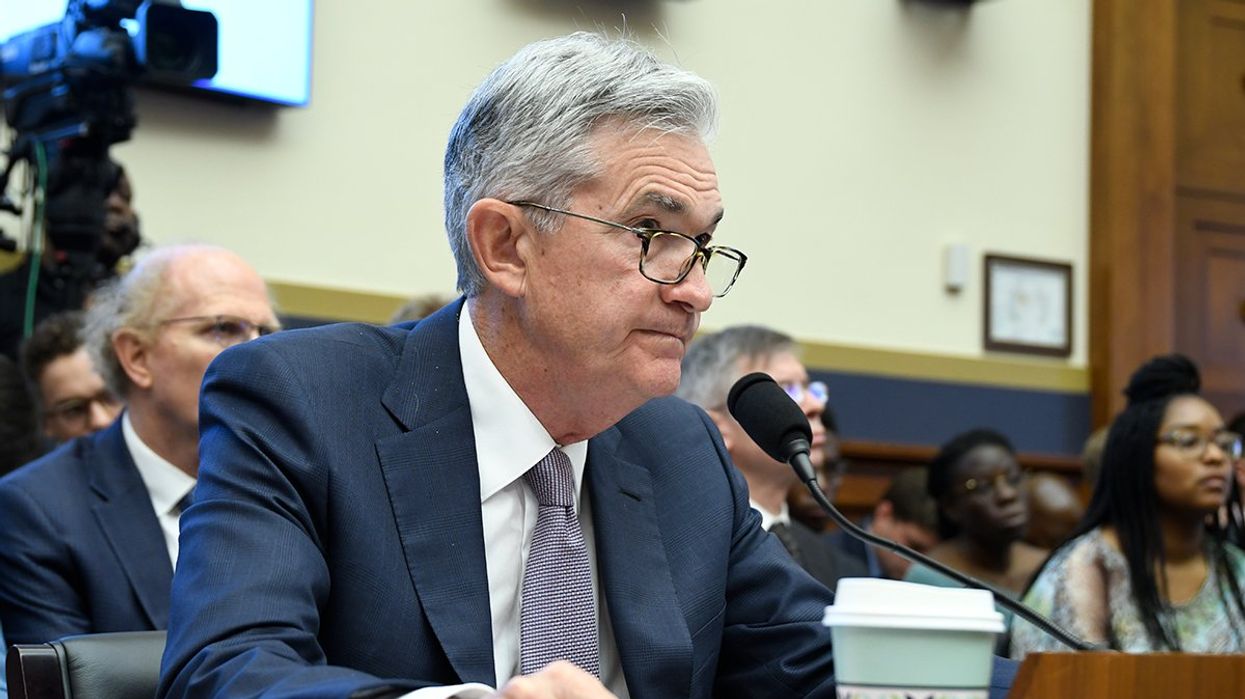How 'new technologies' and 'inadequate regulation' hastened SVB’s 'predictable' collapse: economist

Federal Reserve Chairman Jerome Powell in 2019 (Creative Commons)
March 14, 2023 | 09:55AM ETEconomy
On Sunday, March 12 — two days after the collapse of Silicon Valley Bank (SVB) — Biden Administration officials assured SVB depositors that their funds would be available the following day. Democratic Sen. Elizabeth Warren of Massachusetts was quick to weigh on the SVB debacle, arguing, in an op-ed for the New York Times, that the bank's downfall underscores the need for "stringent" government "oversight" of the banking sector.
Warren views SVB's downfall as a major wake-up call for the U.S. economy. So does economist Joseph Stiglitz, who weighs on the bank's collapse in an op-ed published by The Guardian on March 13.
Stiglitz covers a lot of ground in his op-ed. Like Warren, Stiglitz argues that the collapse was encouraged by insufficient regulatory policy. And he also believes that "new technologies" hastened the bank's demise.
READ MORE: Elizabeth Warren: SVB's collapse underscores the need for 'stringent' banking 'oversight'
"The run on Silicon Valley Bank — on which almost half of all venture-backed tech startups in the U.S. depend — is in part a rerun of a familiar story, but it’s more than that," Stiglitz explains. "Once again, economic policy and financial regulation have proven inadequate. The news about the second-biggest bank failure in U.S. history came only days after the Federal Reserve chair, Jerome Powell, assured Congress that the financial condition of U.S. banks was sound…. Powell assured us not to worry — despite abundant historical experience indicating that we should be worried."
The economist observes that although SVB is a "small" bank compared to Citibank, it is "not small in the lives of the millions who depend on it" in the tech world. Stiglitz goes on to explain why "new technologies" accelerated SVB's problems.
"While new technologies haven't changed the fundamentals of banking," Stiglitz observes, "they have increased the risk of bank runs. It is much easier to withdraw funds than it once was, and social media turbocharges rumors that may spur a wave of simultaneous withdrawals…. New technology also makes the old $250,000 (£205,636) limit on federal deposit insurance absurd: some firms engage in regulatory arbitrage by scattering funds over a large number of banks. It's insane to reward them at the expense of those who trusted regulators to do their job. What does it say about a country when those who work hard and introduce new products that people want are brought down simply because the banking system fails them?"
By causing pain in the tech industry, the economist laments, SVB has inflicted harm on "one of America’s most vibrant economic sectors."
READ MORE: Silicon Valley Bank becomes 'largest bank' to collapse 'since 2008' financial catastrophe: report
"SVB represents more than the failure of a single bank," according to Stiglitz. "It is emblematic of deep failures in the conduct of regulatory and monetary policy. Like the 2008 crisis, it was predictable and predicted.… We need stricter regulation, to ensure that all banks are safe."
Read Joseph Stiglitz's full op-ed for The Guardian at this link.